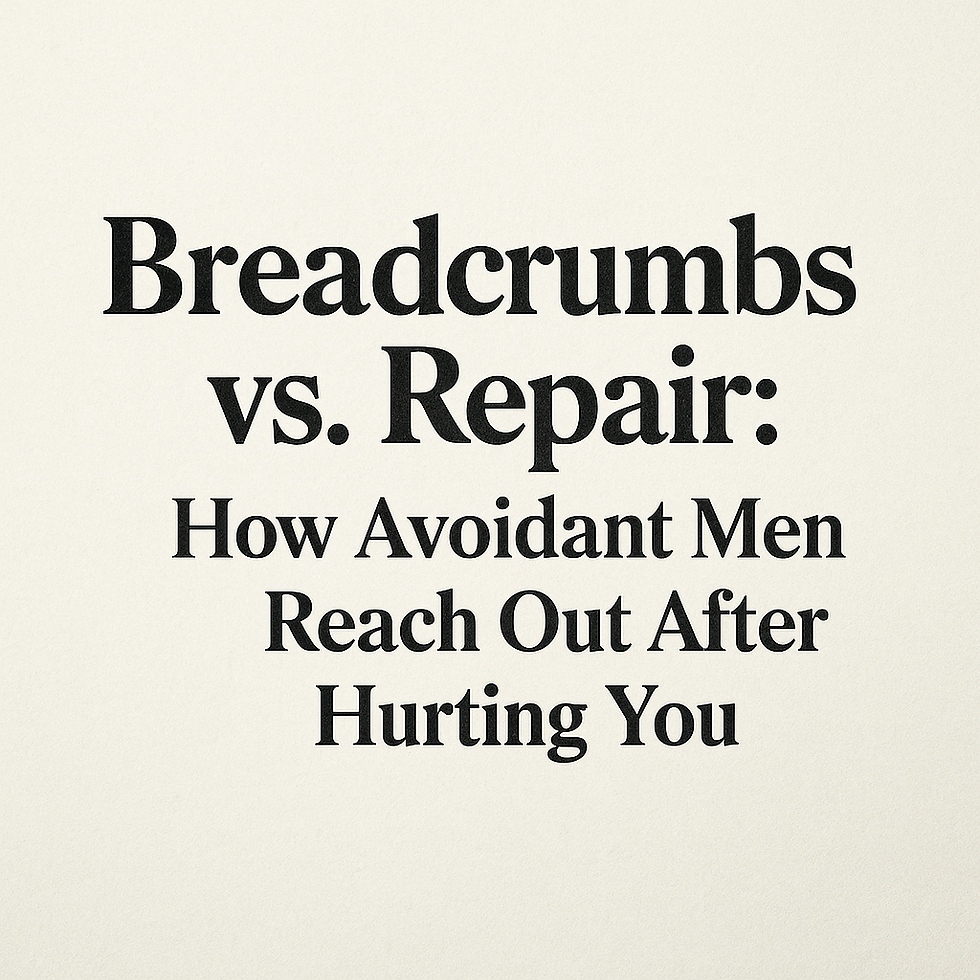How Do You Know if Someone is a Narcissist? 12 Red Flags to Watch For
- Jessica Hopkins
- Jul 8
- 4 min read
Updated: Sep 11

“Was it really that bad?”
“Am I overreacting?”
“Could they actually be a narcissist?”
If you’ve asked yourself these questions, you’re not alone.
Narcissistic abuse doesn’t always look like shouting matches or overt cruelty. Sometimes, it’s silent. Subtle. Wrapped in charm, apologies, and carefully chosen words.
You deserve clarity. So let’s unpack how to recognize narcissistic patterns not just labels and help you trust your instincts again.
It’s About Patterns, Not Labels
First, an important truth:
Not everyone who’s selfish or self-absorbed is a narcissist.
And not everyone with narcissistic traits is abusive.
Narcissistic abuse is about patterns of behavior that harm you over time. It’s:
Emotional manipulation
Gaslighting
Control
Lack of empathy
Erosion of your confidence and reality
Naming these patterns isn’t about diagnosing someone, t’s about protecting yourself.
🚩 12 Red Flags You Might Be Dealing with a Narcissist
Here are twelve common signs drawn from survivors’ experiences and psychological research that someone in your life might be narcissistic:
1. They Make Everything About Themselves
Conversations somehow loop back to them.
Your accomplishments? They’re unimpressed or one-up you.
Your struggles? They dismiss them or change the subject.
“He’d listen for five seconds, then talk for twenty minutes about himself.”
2. They Love-Bomb You, Then Withdraw
Early on, they shower you with:
Compliments
Intense affection
Future plans that feel like destiny
Then… they pull away, leaving you confused.
“He called me his soulmate and a week later, he barely texted back.”
3. They Gaslight Your Reality
They deny things they said or did even if you have proof.
“You’re too sensitive.”
“That never happened.”
“Stop imagining things.”
Over time, you start doubting your own memory.
4. They Lack Genuine Empathy
They may say all the right words, but:
They quickly change the topic when you’re emotional.
Your pain feels inconvenient to them.
Their apologies feel empty or transactional.
“He cried when I confronted him, but it was always about how hard it was for him not what he did to me.”
5. They Need Constant Validation
Praise and admiration are like oxygen. When they don’t get it, they might:
Sulk or withdraw
Lash out with insults
Seek attention elsewhere
6. They Use Silent Treatment as Punishment
Instead of resolving conflict, they vanish emotionally or physically.
They block you.
Ignore your messages.
Pretend you don’t exist for days or weeks.
7. They Criticize You Subtly (Or Overtly)
“Are you really going to wear that?”
“Relax, it was just a joke.”
“No wonder no one can deal with you.”
These comments chip away at your confidence over time.
8. They Feel Entitled to Special Treatment
They expect:
Exceptions to rules
Immediate responses
Constant flexibility from you
They see themselves as above consequences.
9. They Isolate You from Others
They might:
Create drama with your friends or family
Criticize people close to you
Insist “it’s just us against the world”
Isolation makes you easier to control.
10. They Play the Victim
Even when they’ve hurt you, somehow:
They’re the misunderstood one.
They’re suffering because of you.
They claim no one else would put up with them.
This keeps you locked in guilt and responsibility for their feelings.
11. They React Poorly to Boundaries
When you set a limit, they:
Call you selfish or cold
Accuse you of abandonment
Punish you with silence or rage
12. They Smear You When You Leave
When you try to break free, they:
Spread rumors
Lie to mutual friends
Portray you as unstable, crazy, or abusive
This is an attempt to maintain control and damage your reputation.
It’s the Pattern That Matters
None of these signs alone means someone is a narcissist.
But if you’re seeing multiple red flags and feeling smaller, more confused, and more anxious, you’re likely dealing with narcissistic dynamics.
How You Can Start Protecting Yourself
If you suspect narcissistic abuse:
Stop explaining yourself. You won’t convince them. Save your energy.
Document incidents. Keep notes or screenshots if safe to do so.
Establish boundaries even small ones. Notice how they react.
Reach out for support. Friends, a trauma-informed coach, or therapist.
Consider your safety. Especially if you’re planning to leave.
You are not crazy. You’re waking up.
My Story
I used to think narcissists were only loud, obvious bullies.
The man I loved was quiet. Sweet. Sensitive until he wasn’t.
He chipped away at my confidence with silent treatments, subtle digs, and moments of intense charm that kept me hooked.
One day, I realized:
He didn’t love me. He loved the supply I gave him.
Leaving wasn’t easy. But it saved my life. And it led me here to help women like you see the truth sooner than I did.
Your Healing Begins with Awareness
Recognizing narcissistic patterns is the first step toward freedom.
The moment you start naming what’s happening, you begin breaking the spell.
You’re not too sensitive. You’re not overreacting. And you’re definitely not alone.
Resources to Help You on Your Journey
Take the “Could It Be Narcissistic?” Quiz - a quick tool to help you identify patterns and validate your instincts
Join The Power Collective - a private, trauma-informed community for women reclaiming their power after narcissistic abuse
Final Words
If you’re reading this, please hear me:
You are not crazy. You are waking up.
Trust that quiet voice inside you. The one that’s been whispering:
This isn’t love. I deserve better.
You do. And your healing starts now.
Ready for support? Take the Could It Be Narcissistic? Quiz or Join The Power Collective today. You don’t have to do this alone.




Comments